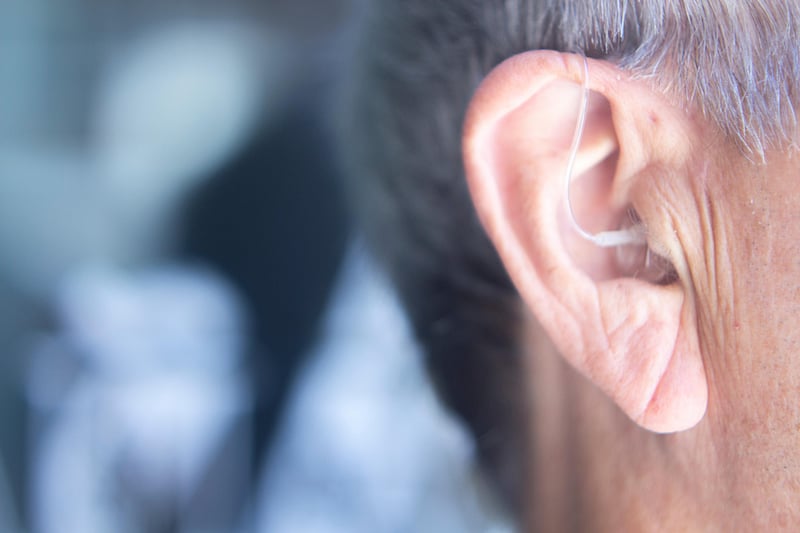Get Healthy!

- Cara Murez
- Posted July 18, 2023
Hearing Aids May Cut Dementia Risk in Those at High Risk
If you're hard of hearing and at higher risk for dementia, hearing aids could be a win-win.
New research, published July 18 in The Lancet, finds hearing aids might reduce thinking declines in older adults --but only in those at higher risk of dementia.
"These results provide compelling evidence that treating hearing loss is a powerful tool to protect cognitive function in later life, and possibly, over the long term, delay a dementia diagnosis,"said Dr. Frank Lin, a professor at Johns Hopkins University School of Medicine and Bloomberg School of Public Health.
"But any cognitive benefits of treating age-related hearing loss are likely to vary depending on an individuals' risk of cognitive decline,"Lin added in a journal news release.
Untreated hearing loss may contribute to cognitive decline in several ways, including by making the brain work harder to hear, at the detriment of other mental functions such as thinking and memory.
It may cause the aging brain to shrink more quickly, the study suggested. Hearing loss may also ultimately result in brain atrophy as people become less socially engaged.
To study this, the ACHIEVE randomized trial at several U.S. sites included 977 adults, aged 70 to 84 years, with untreated hearing loss. They did not have substantial mental impairment.
Two study groups were included: One was at higher risk of cognitive decline; the other was generally healthier people.
They were randomized to either receive audiological counseling and hearing aids or the control intervention of generalized counseling on healthy aging. Researchers followed up with the groups twice a year over three years.
Researchers tested executive function, language and memory at the start of the study and then annually. Among the tests were delayed word recall, incidental learning, logical memory and digit span backwards.
Taken together, there was no difference in cognitive decline after three years between the two groups.
But when looking specifically at the greater-risk group, there was 48% less cognitive change over three years in the group who received hearing aids compared to the one that didn't.
For those in the healthier group, three-year cognitive change did not differ significantly between the hearing intervention and control groups.
Treating hearing loss protected against mental decline in older adults at greater risk of dementia, researchers said.
Age-related hearing loss affects about two-thirds of adults aged over 60 around the world. Fewer than 10% of people with hearing loss use hearing aids in low- and middle-income countries, while fewer than 30% do so in high-income countries, the authors said in background notes.
The 2020 Lancet Commission on Dementia estimated that untreated hearing loss contributed to around 8% of dementia cases worldwide, about 800,000 of the nearly 10 million new cases of dementia diagnosed every year.
"We eagerly await the follow-up of ACHIEVE that is currently underway to examine the longer-term effects of hearing aids on cognition in populations at lower risk of dementia. Further analyses of MRI and social engagement data will also improve our understanding of the ways in which hearing aids may help delay cognitive decline,"said co-author Marilyn Albert, a professor of neurology from Johns Hopkins University School of Medicine in Baltimore.
Study limitations included that participants and researchers were aware of the intervention. Also, two of the 10 neurocognitive tests contained only auditory stimuli, so those with untreated hearing loss could potentially perform more poorly on these tests.
This study was funded by the U.S. National Institutes of Health. In addition to publication in The Lancet, it was presented at the Alzheimer's Association's international conference this week.
More information
The Alzheimer's Association has more on Alzheimer's disease and dementia.
SOURCE: The Lancet, news release, July 18, 2023




